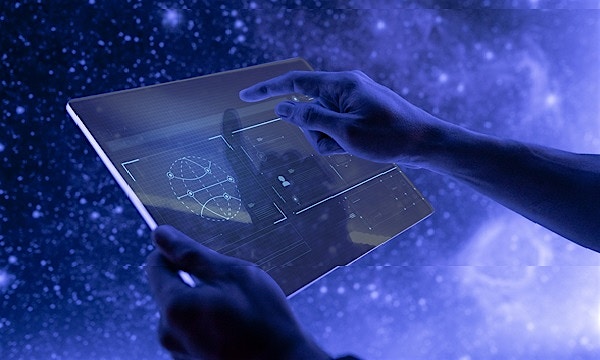The idea of what’s possible for AI technology is an ever-expanding school of thought, that has only grown larger with the achievements of ChatGPT, an experimental online chatbot from OpenAI. ChatGPT recently passed MBA and medical licensing exams.
ChatGPT was built based off the same technology as GPT-3, a milestone AI system built by OpenAI in 2020 that was able to generate text on its own including creating news articles and computer code.
Now, the new AI bot is completing far more advanced tasks. New research out of the University of Pennsylvania’s Wharton School of Business found that the ChatGPT could pass the final exam of the school’s Master of Business Administration (MBA) program.
The bot wasn’t perfect, scoring between a B- and B, according to Professor Christian Terwiesch who wrote the paper to assess whether ChatGPT would be able to achieve a Wharton MBA. Terwiesch outlined that ChatGPT’s score indicates its “remarkable ability to automate some of the skills of highly compensated knowledge workers in general and specifically the knowledge workers in the jobs such as analysts, managers and consultants normally held by MBA graduates including analysts, managers and consultants.”
In the paper, published Jan. 17, 2023, Terwiesch writes that the bot did an “amazing job at basic operations management and process analysis questions, including those that are based on case studies” and that the bot also has an ability to modify its answers in response to human hints.
Further research, led by researchers at Ansible Health, found that ChatGPT is able to pass all three parts of the US medical licensing exam. The bot showed “moderate accuracy” and was “comfortably within the passing range” for the exams.
The AI bot was able to provide a high level of insight in its explanations and the researchers say the results suggest that large language models could assist with medical education and, potentially, clinical decision-making.
It is important to note, however, that the researchers excluded a set of “indeterminate” answers because ChatGPT appears to be programmed to avoid providing medical advice. One of the authors, a VP focusing on healthcare at Bessemer Venture Partners and studying medicine at Brown University, told Business Insider that “those answers were so general that it was hard to say if they were right or wrong.”
Along with the medical and business fields, another AI bot—designed by AI safety and research firm Anthropic—received a “marginal pass” on a law and economics exam at George Mason University. The bot, named Claude, showed “some weaknesses” in the responses. However, researchers suggest that the responses were still a credible and better than many human responses.
The future of AI and education
Despite being a nascent technology, public schools are already moving to ban the AI bots—seeing it’s rise as a threat to academic and lifelong success. Public schools in New York City and Seattle, Wash. have banned the use of ChatGPT from their devices and networks, citing cheating and a negative learning impact as reasons for concern. In a statement to The Hill, OpenAI says that it is already working with educators to address ChatGPT concerns.
“While the tool may be able to provide quick and easy answers to questions, it does not build critical-thinking and problem-solving skills, which are essential for academic and lifelong success,” Jenna Lyle, a spokesperson for New York City’s Department of Education, said.
Using ChatGPT instead of learning the material are significant concerns for educators. The accuracy of the bot also causes concerns as it evolves with human interactions. As it learns, it can produce incorrect information because ChatGPT is a language learning model, the errors are a sign the technology is working as it should.
The future of AI also depends on the future of the workforce. There is a significant skills shortage in the area of AI technologies. AI and automation are also creating new jobs that require new skillsets.
According to HCLTech CEO and Directing Manager C. Vijayakumar said recently that one billion roles will need to be reskilled to deal with the AI skills shortage. Companies will need to establish initiatives and programs to reskill workers, similar to HCLTech’s TechBee program, which sees students learn new technologies and skills.
AI still has a way to go
These platforms are still not all-knowing, super AI bots with limitless applications. These bots are language learning and have learned the kinds of things people say. According to an article by Vox, ChatGPT is easily tripped up by riddles and has limitations that “might be comforting to people worried that the AI could take their jobs, or eventually pose a safety threat to humans.”
HCLTech’s Clara, an innovative chatbot platform, focuses on enhancing workload automation customer experience with natural language processing (NLP) interactions and focuses on helping customers. Using AI as an assistant, whether that’s through a virtual assistant like Clara or to check papers for plagiarism are simpler ways to reconcile what AI systems can do beyond the concern of AI replacing jobs.
“AI has been prevalent for more than two decades. We’ve all experienced it with something like online shopping. Assisted AI is helping us in our day-to-day lives. Generative AI is taking AI to new levels, in terms of content creation and customer service, which is a huge industry,” said Vijayakumar.





